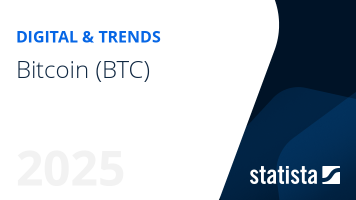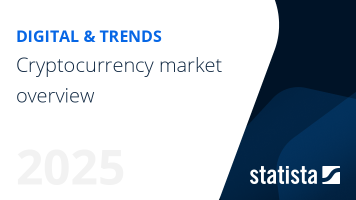Cryptocurrency in South Korea - statistics & facts
South Korea’s crypto market and government regulations
Bitcoin and other cryptocurrencies are currently not considered legal tender or financial assets in South Korea, yet the market has grown extensively in the last few years. The daily trading volume of cryptocurrencies in April 2021 increased more than twelvefold compared to the previous year and even surpassed the value of shares traded on the stock exchange.What is noteworthy is that the industry's growth is largely based on the trading of cryptocurrencies. Domestic Initial Coin Offerings (ICO) are banned in South Korea and the crypto asset management market is relatively small. Due to the lack of profitability, cryptocurrency mining activities are rather limited in this country. A few providers such as Upbit, Bithumb, Coinone, and Korbit dominate the market. Upbit has the largest market share of around 80 percent with its eight million registered users.
After the crypto craze in 2017, the South Korean government began regulating the overheated market. Aside from various new regulations such as the planned crypto taxation, legislation came into effect that required virtual asset service providers to register with the Financial Intelligence Unit (KFIU), the Financial Services Commission's anti-money laundering body, by September 24, 2021. The registration requirements included proof that providers were using real-name bank accounts. However, this was met with reluctance from many banks that feared the potential risks involved. Ultimately, many small providers who, among other things, were unable to secure banking partnerships had to shut down or reduce their services.















































